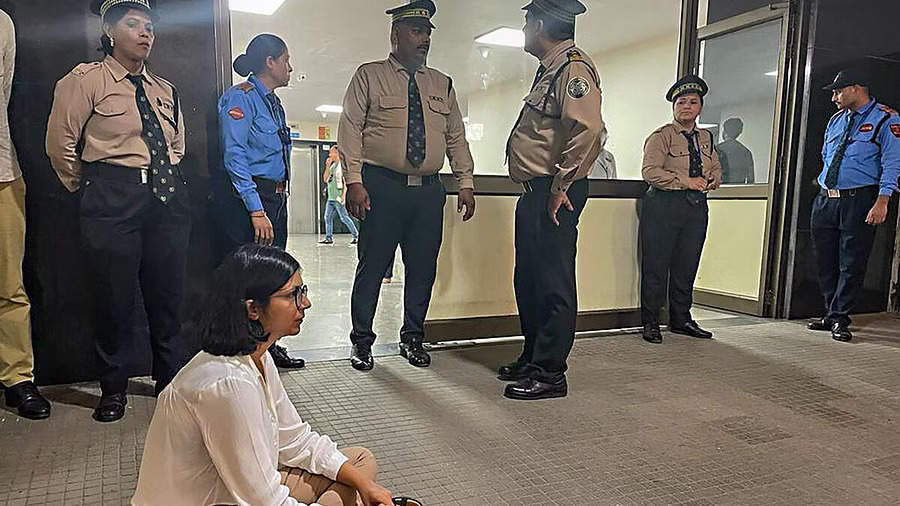Delhi Commission for Women (DCW) Chairperson Swati Maliwal began a dharna (protest) outside a city hospital on Sunday, alleging that she was denied access to meet a minor who was reportedly raped by a Delhi government official. The protest comes as a response to the alleged mishandling of the case and a lack of transparency in the investigation.
Maliwal, accompanied by members of the DCW, claimed that she was prevented from entering the hospital where the survivor is undergoing medical treatment. She expressed her frustration over the lack of cooperation and transparency from authorities, stating, “It is our responsibility to ensure the safety and well-being of survivors, and denying access to them is a grave violation of their rights.”
The DCW chairperson took to social media to voice her concerns, garnering significant public attention and support. The incident has ignited discussions on social media platforms, with many expressing outrage over the alleged mistreatment of the survivor and the importance of safeguarding survivors’ rights and access to justice.
In response to the ongoing protest, Delhi government officials have issued statements assuring a fair and unbiased investigation. They emphasized their commitment to the well-being of survivors and expressed willingness to address the concerns raised by the DCW and other stakeholders.
Human rights organizations and activists have rallied behind Maliwal, calling for a thorough investigation into the alleged rape case and urging authorities to ensure the survivor’s safety and well-being. The incident has also raised broader questions about the treatment of survivors of sexual assault and the need for a supportive and empathetic approach during such challenging times.
As the protest continues, all eyes are on the evolving situation and the response from the Delhi government. The incident sheds light on the importance of effective communication, cooperation, and transparency in cases involving survivors of sexual assault, underscoring the need for systemic changes to better protect their rights and dignity.










